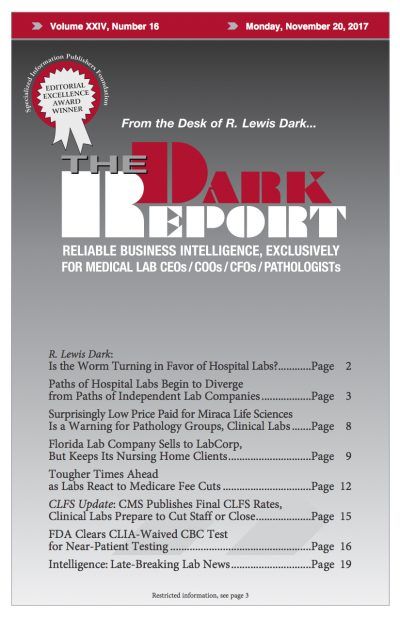CEO SUMMARY: Vista Clinical Diagnostics of Clermont, Fla., is betting big on the nursing home sector just when many labs serving nursing homes are worried about steep Medicare cuts coming Jan. 1. After selling its physician office referral testing, 35 patient service centers, and a mobile testing service to LabCorp, Vista will retain its nursing …
Fla. Lab Sells to Labcorp, But Keeps Nursing Homes Read More »
To access this post, you must purchase The Dark Report.


